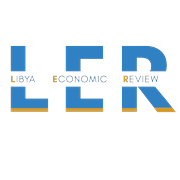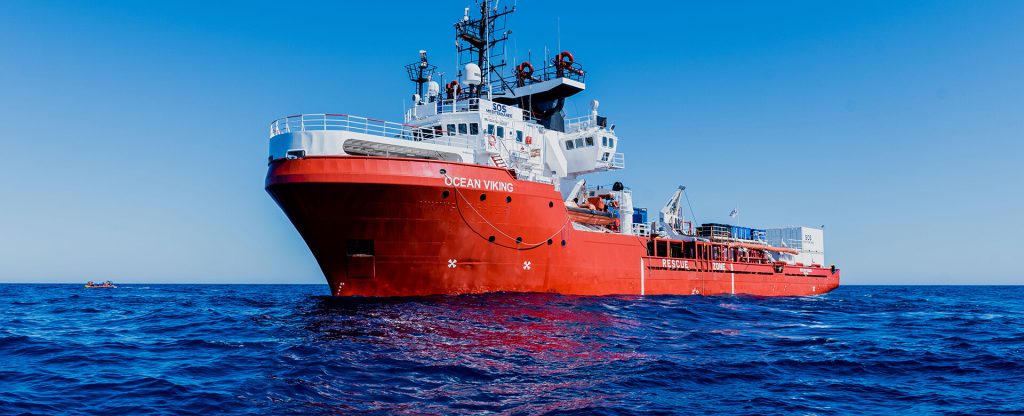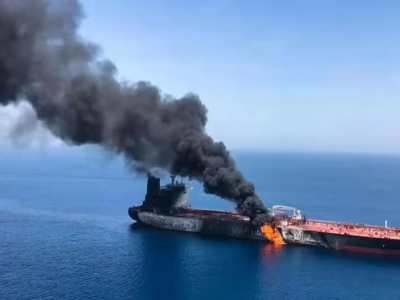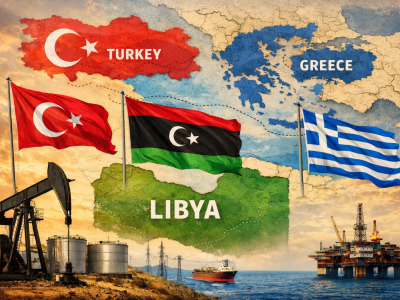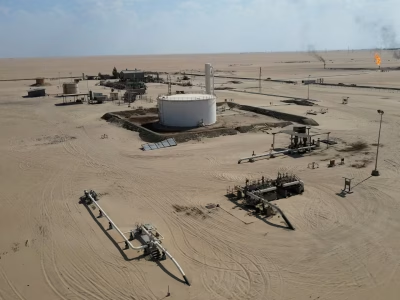Libyan Coast Guard Faces EU Pressure After Ocean Viking Shooting
On August 24, 2025, an incident at sea placed Libya at the center of international attention. The Libyan Coast Guard opened fire on the Ocean Viking, a Norwegian-flagged rescue vessel operated by SOS Méditerranée, while it searched for migrants north of the Libyan coast. The gunfire lasted nearly 20 minutes, shattering windows and forcing the crew and those rescued to shelter in a panic room. Coastguardsmen reportedly issued threats over the radio, warning the ship to leave the area.
Some have suggested the shooting may have been a case of mistaken identity, given the number of actors operating in Libyan waters. Yet the vessel involved had been donated by Italy under a European Union program, and the fact that it was used against a European rescue ship has caused alarm in Brussels and Rome. The EU has formally requested clarification, but Libya has not yet provided an official response. The episode has put migration cooperation back under the spotlight and raised pressing questions about how EU support has shaped Libyan institutions and sovereignty.
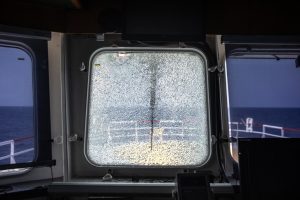
EU Funding and the Expansion of the Coast Guard
Since 2017, the EU has spent more than €465 million in Libya, providing boats, vehicles, training, and surveillance systems. At least 20 to 40 patrol boats have gone to the Coast Guard, including the class used against the Ocean Viking. By 2018, Libya’s forces were intercepting almost half of all migrants in the central Mediterranean.
EU officials describe this as life-saving work and point to Libya’s improving human rights record. Yet a 2024 European Court of Auditors report found EU funds often ended up in detention centers with unclear management and that safeguards were rarely applied.
The funding expanded Libya’s interception capacity but did less to strengthen governance. Continued support depended primarily on stopping boats, which encouraged the Coast Guard to act with little restraint. The Ocean Viking incident highlighted the consequences of that imbalance.
Controlling migration has become one of Libya’s most significant diplomatic tools. The 2017 Italy-Libya Memorandum of Understanding exchanged boats and funds for interceptions and was renewed in 2023. More than 108,000 people have been intercepted and returned since 2017.
This cooperation also opened doors. In January 2023, Italian Prime Minister Giorgia Meloni signed an $8 billion gas deal in Tripoli and pledged five more boats to the Coast Guard. Migration control and energy deals became closely connected.
However, the Ocean Viking incident damaged Libya’s reputation abroad. The European Commission called it a “worrying development” and demanded clarification. Members of the European Parliament asked whether funding to the Coast Guard should be investigated or even suspended. In Italy, opposition politicians criticized the use of an Italian-donated boat in the incident.
If European governments begin to see Libya as unreliable, the cooperation that once brought leverage could instead bring sanctions or funding cuts.
Governance and Institutional Challenges
EU funds have expanded the Coast Guard and the Department for Combating Illegal Migration, but within Libya’s fragmented system they have sometimes strengthened armed groups more than state institutions.
Reports indicate that networks of coast guard officers and militias have profited from migration-related activities, and EU-supplied assets have occasionally been diverted for personal use. Oversight has been limited, and multiple bodies now claim responsibility for “coast guard” duties, including the navy, interior ministry units, and militia groups, all competing for EU-supplied resources.
These dynamics have complicated institution-building. Aggressive tactics at sea became increasingly common over time, culminating in the Ocean Viking incident.
EU support has tied many Libyan policies to European agendas. Brussels can now threaten to withhold funds or impose conditions when incidents occur. Reliance on this support constrains sovereignty, as Libya is expected to act in line with EU border control priorities.
Economically, EU projects have focused heavily on patrols and detention rather than broader development. Auditors noted that they failed to address the root causes of instability. Meanwhile, a shadow economy around migration has emerged, with groups benefiting from both enforcement and smuggling. This distorts incentives and discourages investment outside the oil sector. Libya’s international reputation on rights issues also limits trade and financial opportunities.
Legal risks are increasing. NGOs in Europe have filed complaints after the Ocean Viking, seeking accountability not only for the shooters but also for their backers. If such cases progress, they could expose Libya’s command structures to deeper scrutiny and complicate ties with the EU.
Charting a Way Forward
The Ocean Viking incident illustrates the costs of relying heavily on migration control as a foreign policy tool. EU money and recognition have not significantly strengthened Libya’s institutions or economy. Instead, they have tied national policy closely to external agendas.
Libyan authorities now face choices. Investigating and addressing the actions that led to the incident would demonstrate accountability. Seeking to ensure that EU funds support institution-building and development, rather than focusing only on interceptions, could help rebalance the relationship.
If these steps are not taken, Libya risks being seen abroad as a proxy force rather than a sovereign partner. Migration cooperation has provided short-term gains. The Ocean Viking incident showed how quickly those gains can be undermined. Libya’s credibility, sovereignty, and economic future depend on proving that it can manage its borders responsibly and on its own terms.
